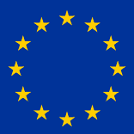European Union wants its own DNS resolver that can filter websites
The European Union is investigating the possibility of setting up its own DNS infrastructure for European organizations and citizens. With this, Europe wants to break the market power of a handful of parties. It would also enable Europe to block undesirable websites immediately.
The project has the working title DNS4EU. The European Union has now opened a tender for it. An own DNS resolver is part of the strategy of the EU to eventually become more digitally independent from large international parties. According to the Union, European institutions and citizens are increasingly dependent on non-European DNS resolvers. "The rollout of DNS4EU is about consolidating DNS solutions in the hands of a handful of large companies," the tender states. The EU recognizes that there is a lack of investment from the continent which means that new DNS infrastructures are barely being set up.
In addition to autonomy, the EU also sees its own resolver as a form of "cybersecurity, data protection and privacy according to European rules. The tender stipulates that the resolver must comply with standards such as https and dnssec, but also dns-over-https and dns-over-tls. Data must be processed within the European Union and companies may not sell personal data or make money from it in any other way. The tender does leave room for the use of aggregated data, for example for security purposes.
The EU wants to use the resolver, among other things, to be able to block websites on a European level. For example, it must be possible to filter hostnames of URLs on the basis of 'legal conditions in the EU or national jurisdictions'. In addition, the resolver must be able to block websites with illegal content such as malware or phishing sites. Data for this would come from European security organizations, such as CERTs or national investigation services. It is striking that the tender specifically states that companies can offer "premium and wholesale services" for the resolver. These are opt-in services for 'extra security' such as more filtering, monitoring and broader support.
The EU does not specify whether the resolver will soon become mandatory for European companies or providers. In any case, the service must become available to everyone, including citizens, instead of only to certain public institutions.
https://tweakers.net/nieuws/19....2250/europese-unie-w







